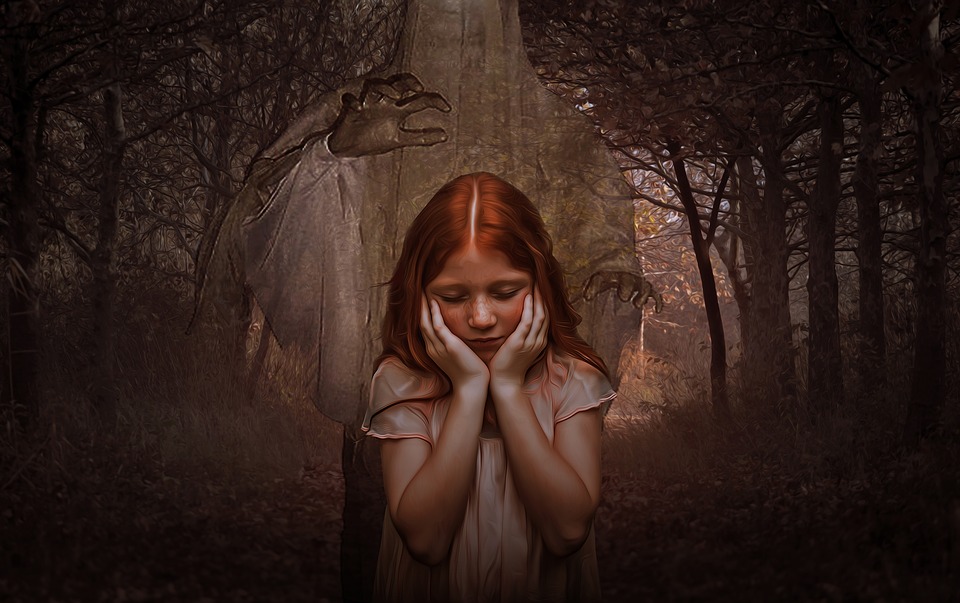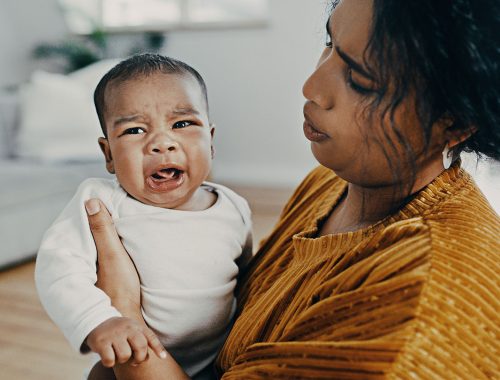
Night Terrors And Nightmares In Kids
Night terrors and nightmares are different. Though night terrors can be mistaken for a nightmare, it is by far tenser and may be the sign of an underlying medical problem. While nightmares are easier to comfort, some children even forget about them when waking up in the morning.
Night Terrors

Night terrors are due to the over-stimulation of the central nervous system when asleep. You may not know, but there are different stages when sleeping. A night terror is not a nightmare but more like a reaction when you go from one sleeping stage to another.
Night terrors often occur 2 to 3 hours after a kid falls asleep when sleep transitions from the deepest non-REM state to the lighter REM period. This is usually a seamless transition. However, a youngster may get agitated and afraid at times, and this fear reaction is known as night terror.
Signs And Symptoms
- Sudden movement
- Screaming in distress
- Heavy sweating
- Act upset or scared
As night terrors happen during the stage of deep sleep, children will have no clue of what happened the previous night. Some children remember their nightmares, but they do not remember anything about night terrors most of the time.
Night terrors can happen to any kid, but it has been witnessed more in children who are new to an environment, overtired, sleep-deprived, or on new medication. Night terrors are less frequent than a nightmare in children (about 3 % – 6 %)
What To Do To Help?
Most parents feel helpless in these situations. As you know, night terror happens 2-3 hours after falling asleep, so it is better to watch your child during the first hours they fall asleep.
There is no medication or treatment to stop night terrors, but there are some habits that you may incorporate into their sleeping routine to decrease the probability of a night terror; cuddle with your child before they fall asleep, make sure they get enough rest even during the day if they are used to napping, don’t allow your child to be overtired by staying up late.
Victim Of Night Terror
If your child is experiencing night terror, try to see the pattern in it. Some children may experience night terror at the same time and if that is the case, try to wake them up at least 10 minutes before it happens to prevent it.
Nightmares

Compared to night terrors, nightmares happen when the brain is still very active. They feel very real as the brain is still active, and most of the time, they are attached to several exhausting emotions. When children wake from a nightmare, they still reckon it, so, normally, they are frightened, but as soon as they fall back to sleep, most of them won’t remember in the morning.
There are no exact causes of nightmares; they sometimes interpret something they have faced or encountered during the day. For example: watching an error movie, a street fight, or parents’ divorce.
What To Do To Help?
You cannot prevent nightmares, but you can incorporate some things into their bedtime routine to avoid them. Set a regular bedtime and wake-up time, have a good routine, try to make a cozy atmosphere, avoid scary movies or adult films, and you should try to comfort them the most possible.
After a nightmare, you should be there for them, listen to them and comfort them with your words, with a lot of cuddles and help them go back to sleep.
Nightmares and night terrors are part of growing up. It is not easy for a parent to see their child panicking, but you should not let anger or panic get to you. In the comments, let us know what you do if your child experiences nightmares or night terrors…
You May Also Like

Best Parenting Tips We’ve Got From Celebs
2023-06-13
The Essential Role of Fathers in Raising Happy Kids
2023-05-31

